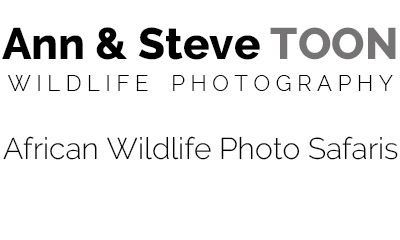If we asked you to list 10 things you might see on a photo safari to Africa’s game-rich Chobe river in Botswana, better still if we asked you to list 20 things, 50 things even, and then some, we bet you’d never come up with the surprise sighting, and special photographic opportunity, our guests had on the very last morning of their time with us on the Pangolin photo boats last month.
It was just after first light – we’d left the houseboat well before sunrise to ensure we could squeeze the most out of the sweet light and our remaining time on the river – and our boatman Laskey was carefully getting us into position for a couple of pied kingfishers hovering at perfect range in a tranquil spot close by some rocks.
We were all busy aiming our cameras skyward when he suddenly started pointing keenly towards a group of rocks just to the side of the boat. ‘There, by the second rock. An otter’.
By the time we’d cottoned on and switched attention from the kingfishers the otter had dived underwater and we were all craning our necks to catch a glimpse. After all an otter is not an everyday occurrence on an African safari, yet is always a creature you want to encounter at close quarters wherever it may pop up.
For the next five minutes we tried to train our cameras on not one, but two dark heads that bobbed up momentarily and then disappeared in the water or behind the rocks just as quickly. We were so chuffed to run into them we were all happily snapping not so good record shots of not quite sharp dark blobs just to prove we had seen them. And there was a renewed buzz on the boat where we’d been a little quiet before given it was our very last go photographing from these specially-adapted boats on this world-famous waterway.
Things eventually went quiet and Laskey turned the boat around in readiness to move off. Steve and I started to think about what our next ‘last morning’ subject might be, watching as yellowbilled storks, spoonbills and whistling ducks criss-crossed on their flightpaths above us in the clear blue sky.
 ‘There. Again. Look.’ The otters had suddenly reappeared – out of nowhere – and this time there were three. A family of chocolate coloured spotted necked otters playing in the water – the first we’d ever seen in all our visit to Africa. They swam together and played about the rocks; sleekly diving in the water from time to time and splashing about. We kept a respectful distance and enjoyed sharing in the sheer agility of their early morning routine.
‘There. Again. Look.’ The otters had suddenly reappeared – out of nowhere – and this time there were three. A family of chocolate coloured spotted necked otters playing in the water – the first we’d ever seen in all our visit to Africa. They swam together and played about the rocks; sleekly diving in the water from time to time and splashing about. We kept a respectful distance and enjoyed sharing in the sheer agility of their early morning routine.
What we didn’t realise at this point was that the best was yet to come. When one of the trio successfully nailed a leopard squeaker fish and decided to sit out prominently on a nearby rock and enjoy the freshly-caught breakfast right in front of us we just couldn’t believe our luck. We must have watched and photographed for a good 20 minutes or more. The otter seemed oblivious to our presence, and the sound of the cameras, as we quietly and gradually cruised close enough to fill our frames with this cameo performance. The light was good and Laskey was able to position the boat perfectly (cheers for the great driving!) enabling us all to capture lovely images of this unexpected, less often photographed, slice of Chobe river life.
 Spotted necked otters, although found across a large distribution area in Africa are currently in decline and face a growing number of threats including habitat loss, river pollution, loss of prey abundance, persecution and climate change. With fully-webbed feet they are more aquatic than Cape clawless otters and have a diet that’s mainly made up of fish. They get their name from their attractive creamy mottled throat markings. Sadly, their conservation status has been reassessed by the IUCN in recent years from ‘least concern’ to ‘near threatened’.
Spotted necked otters, although found across a large distribution area in Africa are currently in decline and face a growing number of threats including habitat loss, river pollution, loss of prey abundance, persecution and climate change. With fully-webbed feet they are more aquatic than Cape clawless otters and have a diet that’s mainly made up of fish. They get their name from their attractive creamy mottled throat markings. Sadly, their conservation status has been reassessed by the IUCN in recent years from ‘least concern’ to ‘near threatened’.
As you can imagine our last breakfast back on the houseboat was an animated affair as we relived the moment. An otter hauled out on a rock eating a fish. In nice light. From the photo boat. On the Chobe. On our very last morning on the water. Totally unexpected. But otter magic.











Leave a Comment